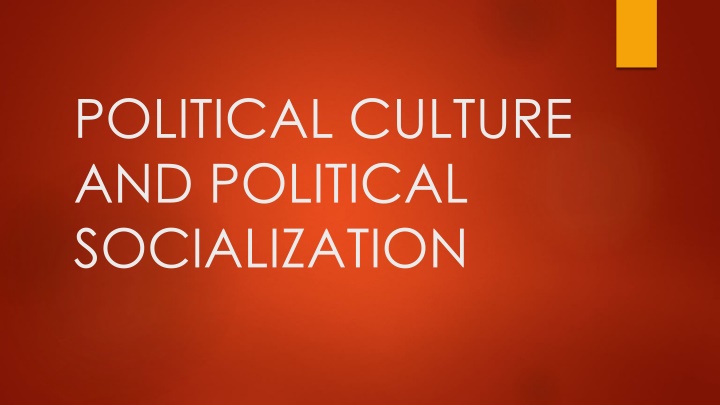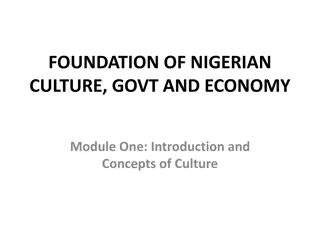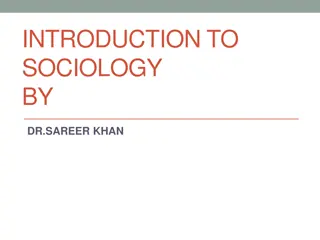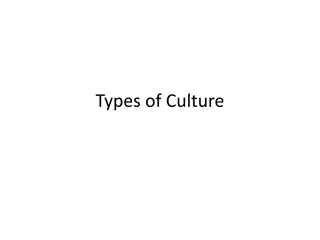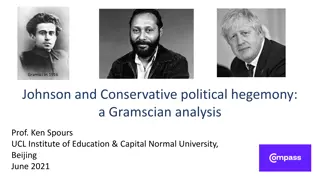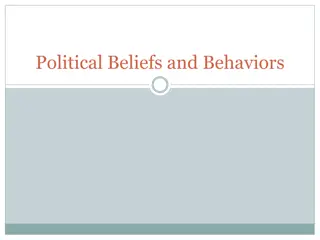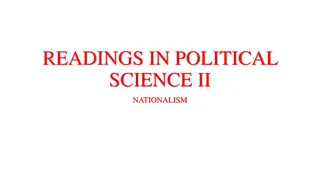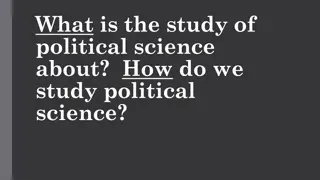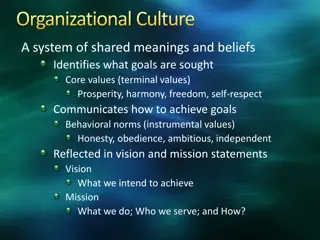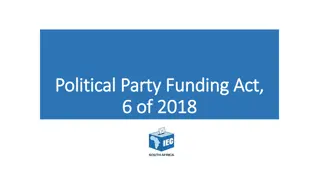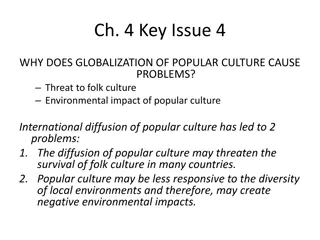Delving into Political Culture
Delve into the intricate world of political culture and socialization, exploring enduring attitudes, beliefs, and values that shape political identities. Uncover the essence of the American Dream, political socialization processes, and examples of enduring political orientations. Understand the significance of political unity, conflicts, and the impact of social learning versus indoctrination in modern democracies.
Download Presentation

Please find below an Image/Link to download the presentation.
The content on the website is provided AS IS for your information and personal use only. It may not be sold, licensed, or shared on other websites without obtaining consent from the author.If you encounter any issues during the download, it is possible that the publisher has removed the file from their server.
You are allowed to download the files provided on this website for personal or commercial use, subject to the condition that they are used lawfully. All files are the property of their respective owners.
The content on the website is provided AS IS for your information and personal use only. It may not be sold, licensed, or shared on other websites without obtaining consent from the author.
E N D
Presentation Transcript
POLITICAL CULTURE AND POLITICAL SOCIALIZATION
INTRODUCTION Public opinion on the issues and leaders of the day is transient and fleeting a snapshot in time. Deeper layers of political attitudes also shape American politics Political Culture widely held ideals and symbols Political Socialization More enduring political orientations that help define someone s political identity
Political Culture Definition The common set of attitudes, beliefs, and values that provide the foundation of support for a political system. Necessary for political unity and stability Conflicts over political culture can lead to civil war
The American Dream The American dream of personal liberty, equality of opportunity, and personal advancement. Acceptance: Representative democracy Rule of law and the Constitution Capitalism
Continued Religious liberty Belief in compromise Tolerance of others America as a nation of immigrants Diversity
Political Socialization Political socialization is the process by which we acquire political knowledge, attitudes, and beliefs. An important part of one s political identity and orientation to politics. How do we develop our enduring attitudes and connections to our political system?
Examples of Enduring Political Orientations Partisanship ( party identification ) Interest in politics Social Trust/Trust in Government Efficacy Sense of civic duty Obedience to authority
Question How did you decide to become a Republican, Democrat, or Independent?
Social Learning versus Political Indoctrination Indoctrination by government agencies in authoritarian political systems In modern democracies, political socialization occurs a process of social learning, acquired informally often through role modeling. Most important stage occurs during early childhood often by age 5.
Agents of Socialization Those persons and institutions that have the greatest influence on our development into political beings. Parents Peers Schools Media Voluntary associations (churches, scouts, service organizations, athletic teams)
Process Some may be formal, such as a classes in American history and civics. Mostly its informal, by osmosis daily experiences Exposure role modeling how we are treated or see others treated, and expectations. Ex: whether to vote influenced by seeing parents vote Ex: discussions around the dinner table, school rules
DiscussionSocialization of Generation Z (Born between 1995-2010) Which findings do you find most surprising or revealing about millennials?
Life Cycle versus Generational Effects What explains this? Two hypotheses: Life cycle (age) effects as we age, our orientation to politics naturally changes Generational effects key historical experiences in adolescence and early adulthood have an impact on our political orientation
DiscussionSocialization of Generation Z Watch this video: https://www.youtube.com/embed/Sa8dAf7qz2Y What events have had the most impact of generation z? What kinds of attitudes are characteristic of gen z? How is gen z s approach to political activism unique? What should a politician do to reach out to this generation?
Mr. Lamberts observations High levels of disaffection from social institutions-- political parties (50% nonpartisan), churches (29% unaffiliated) and marriage (26% between 18-32) Claim to be independent but are more likely to vote Democratic than other age groups More likely to support gay rights, less likely to identify as religious, patriotic, or pro-environment Influenced by school shootings, President Trump, pandemic, and social media.
Question for discussion Does the January 6, 2021 riot at the US capitol signify a breakdown in American political culture? Why or why not? What has had the greatest impact on your personal political development? Do you observe any fundamental differences in the way that your parents think about politics, compared to how you think about politics? What impact will the pandemic have on your generation s orientation to politics? For example, will it make you more trusting of government or less? More willing to accept restrictions on your liberty or less? More willing to think in terms of the common good, or less? 1. 2. 3. 4.
What Is a Hypothesis? An empirically testable claim or prediction that addresses a research question. Empirically testable means you can find facts to support or to disprove your hypothesis. Technically speaking, you don t prove a hypothesis you support it. But you can disprove it if the facts can t support it. The hypothesis suggests both a dependent variable (what is to be explained) and an independent variable (what helps explain it).
